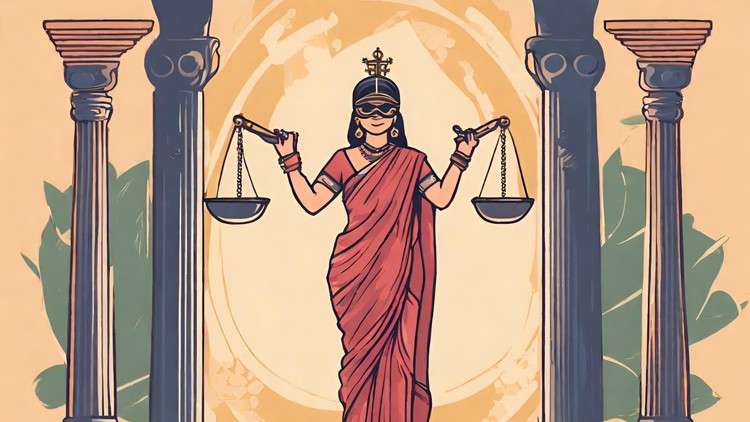
Learn the workings of the civil justice delivery systems of India
What you will learn
In-Depth Knowledge of CPC
Proficiency in Legal Terminology
Legal Skills
Awareness of Justice Administration
Problem-Solving Abilities
Preparation for Further Study
Description
Welcome to Code of Civil Procedure – Part 1! This comprehensive course is designed to provide you with a deep understanding of the Code of Civil Procedure (CPC) in India. CPC is a critical legal framework governing civil litigation in the country. In this course, we will explore its key aspects and equip you with the knowledge necessary to navigate the Indian justice administration system effectively.
Course Curriculum:
Module 1: An Introduction to Indian Justice Administration Module Overview: In this introductory module, we will explore the concept of justice delivery in India, its global perspective, and delve into the essential CPC sections related to it.
- Lecture 1: Perception of Justice Delivery: A Comparison with Global Peers
- Gain insights into how justice is perceived and delivered in India compared to global standards.
- Lecture 2: CPC Section 158 and Order 51
- Dive into the details of CPC Section 158 and Order 51, understanding their significance in the legal process.
- Lecture 3: Suits in General
- Explore the fundamental concepts surrounding suits in the legal context.
- Lecture 4: Jurisdiction
- Learn about the concept of jurisdiction and its importance in civil litigation.
Module 2: Suits in General Module Overview: This module focuses on the initiation of suits, pleadings, types of suits, and the critical aspects of framing suits and avoiding misjoinder of causes of action.
- Lecture 1: Institution of Suits
- Understand the procedures and requirements for initiating legal suits.
- Lecture 2: Pleadings
- Explore the intricacies of pleadings and their role in civil cases.
- Lecture 3: Framing and Types of Suits
- Learn how to frame suits correctly and gain insights into various types of suits.
- Lecture 4: Framing of Suits/Misjoinder of Cause of Action
- Examine the importance of framing suits accurately and the consequences of misjoinder of causes of action.
Module 3: Pleadings Module Overview: Pleadings are a critical part of any legal process. In this module, we will delve deeper into pleadings, including plaint, service of summons, and the written statement.
- Lecture 1: Plaint
- Explore the concept of a plaint and its significance in legal proceedings.
- Lecture 2: Pleading
- Understand the art of pleading effectively in civil cases.
- Lecture 3: Service of Summons
- Learn the procedures involved in serving summonses to parties involved in a lawsuit.
- Lecture 4: Written Statement
- Examine the role and content of a written statement in response to a plaint.
Module 4: Commissioner Module Overview: This module focuses on Section 74 of CPC, the appointment of commissioners, and related aspects.
- Lecture 1: Section 74 of CPC
- Analyze the significance and provisions of Section 74 of the Code of Civil Procedure.
- Lecture 2: Appointment of Commissioner
- Explore the procedures and criteria for appointing a commissioner in civil cases.
- Lecture 3: Appointment of Commissioner – Continued
- Further delve into the various aspects and scenarios related to the appointment of commissioners.
By the end of this course, you will have a strong foundation in the Code of Civil Procedure and the intricacies of Indian justice administration. You’ll be well-prepared to navigate civil litigation procedures effectively and confidently.
Enroll now to embark on this exciting journey into the world of civil procedure and justice administration in India!
Content